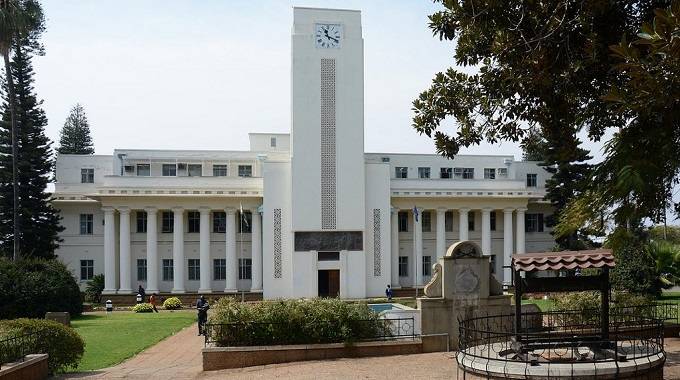Bulawayo residents are calling on the city council to revise its billing process to ensure they receive reasonable bills at the end of each month.
Residents have expressed frustration that the local authority is quick to issue letters of demand and threaten to attach their properties while failing to address the issue of estimated bills.
In interviews conducted by CITE, residents complained that despite enduring prolonged water shortages each month, their bills remain unchanged.
The Bulawayo City Council (BCC) is owed ZWG 430,682,618 (US$31,254,181) in unpaid rates, with the majority of the debt—ZWG 309,023,169 (US$22,425,484)—owed by residents. The government owes ZWG 35,039,998, while industrial and commercial entities owe ZWG 121,659,449.
One resident, who requested anonymity, said they had not had their meter read in a long time.
“We have offices in the low-density suburbs. We pay our bills monthly through transfers, but sometimes we notice that they do not process our payments on time. At times, we end up compiling our proof of payments and taking them to the council offices. They need to upgrade their systems so that payments, regardless of the method used, automatically reflect,” the resident said.
“We hardly miss payments, but somehow we still receive exorbitant bills every month. We’ve asked them to send someone to read the meters physically, but no one has ever come. This means we are being billed based on estimates, which is unfair. And even if they realize we’ve been overcharged, they never refund us.”
Another resident, Netsai Kanengoni, highlighted that the water they use during water-shedding periods does not justify the high bills they receive.
“In Magwegwe, we get water at least once a week, and it’s unreasonable to be billed such high amounts. Yes, we fill up our containers during that time, but they aren’t that many, and they’re emptied long before we get water again. We rely on alternative sources. We shouldn’t be charged exorbitant rates for a service we’re not receiving,” she said.
Memory Ncube from Sunnyside noted that their bills are usually reasonable because their water meters are installed outside their yards, allowing easy access for meter readers.
“We usually get reasonable bills, which average between $50 and $60 a month. It’s probably because our water meters are outside the yard, so it’s easier for the meter readers to access them. We rarely get estimated bills,” she explained.
During the Full Council Meeting on Wednesday, Ward 9 Cllr Donaldson Mabuto pointed out that residents sometimes accumulate large bills by defaulting on payments.
“As councillors, we must tell our residents the truth. When someone receives a letter of demand, it’s important to investigate why. Often, when you take that bill to credit control, you find that the person has not made any payments to the council for a long time,” he said.
“The other issue is that during water shedding, residents fill up too many containers. When water is reconnected, they discard the water in the containers and fill them with fresh water. All that water is billed.”
Ward 25 Cllr Aleck Ndlovu added that some residents pay much less than what they are billed, resulting in the accumulation of high debts.
“Sometimes residents claim to pay every month, but we need to verify how much they are paying. You’ll find that someone gets a bill of $40 a month but only pays $10 a month. That means it will take them four months to clear one month’s bill, while more debt accumulates,” he said.

